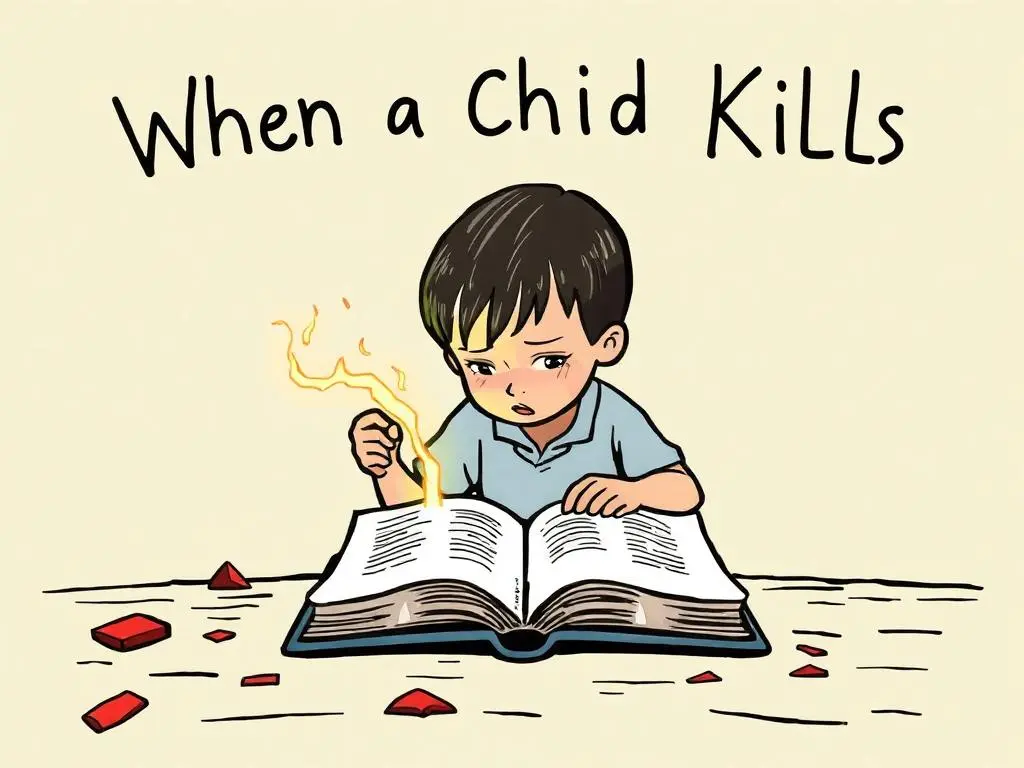The Moment of Tenderness, by Madeleine LEngle: An Excerpt
Introduction
By Charlotte Jones Voiklis
I was about nine years old, curiously but quietly poking about my grandmother Madeleine L’Engle’s manuscripts so as not to disturb her writing and risk losing the privilege of keeping her company in her “Ivory Tower” while she worked. The Tower was just a room over the garage in the eighteenth-century New England farmhouse where she and my grandfather had lived and raised three children during the 1950s and where they still spent weekends, holidays, and long stretches of summer. I’m not sure who christened it “the Tower,” but the name was used ironically by both her and the rest of the family, an acknowledgment of the privilege of solitude and time. The manuscripts I was poking about in were housed in repurposed ream boxes with words like “Eaton” and “Corrasable Bond” on the sides, and in black three-ring binders whose leather casings were beginning to crack. There were dozens of boxes and binders, including ones with A Wrinkle in Time, The Arm of the Starfish, and A Wind in the Door written on them, but I wasn’t interested in the manuscripts of stories that could be read as real books: I was more curious about the scraps and stories and studies in the other boxes. I came across “Gilberte Must Play Bach” in one of those. I’m not sure why I stopped to read this particular one, but I liked the French name in the title, and the imperative. The story was strange to me, and sad, and although the girl in the story was named Claudine, I understood it to be autobiographical. The sadness of the story—and its unresolvedness—shook me and gave me a glimpse at the depth of things we might discover about the people we love.
When my grandmother died in 2007, there were papers and manuscripts distributed among three different houses and an office. It’s taken time to organize and inventory those materials, and it’s also been a considerable emotional journey for me to read, assess, and come to the decision that these stories should be shared publicly.
When I read “Julio at the Party,” an onionskin manuscript held together with a rusty paper clip and folded in half, tossed in a box of artifacts, books, and papers, I thought at first that the story must be by some other writer who had given it to her in a class, or over tea or coffee for comment. However, on a second read I recognized details—the nickname Horrors, the malapropisms of the title character—that convinced me it was indeed hers. I later found that the short story had been taken from an unpublished novel manuscript, written and rewritten several times in the 1950s, called Rachel Benson (or, alternatively, Bedroom with a Skylight).
[ Return to the review of “The Moment of Tenderness.” ]
More exploration over time into the loose-leaf binders and manuscript boxes revealed more than forty short stories, most written in the 1940s and 1950s, when she was first an aspiring playwright, then a promising novelist, and then a despairing writer who struggled to find a publisher. All but one were written before A Wrinkle in Time, the 1962 classic that made her career, and I date that one story post-Wrinkle because of the unique typeface of the typewriter she used—oversized, square, and sans serif. It was an early electric typewriter and I remember the satisfaction and mastery I felt when my fingers were strong enough to prevail over the resistance the keys provided. That story, called “That Which Is Left,” shocked and shook me, too, because of the narrator’s selfishness.
The earliest stories were written for college creative writing classes. The manuscript for “Gilberte Must Play Bach” has teacher’s comments and a grade (A–). Some have more than one version, reworked over time, and there is one bound manuscript of collected short stories called Stories from Greenwich Village, which was compiled in the early 1940s when she was working as an understudy and bit player. She lived with a rotating band of roommates in the Manhattan neighborhood of Greenwich Village, which at the time was an affordable haven for artists and “bohemians.”
The stories collected here are arranged in a loosely chronological order, and you can see her growth as a writer. The first five are the earliest, and in each the protagonist gets progressively older, almost a cumulative coming-of-age narrative. Many of these earliest stories were reimagined and revised and appeared in other forms in later work. In particular, her novel Camilla has a scene similar to “The Birthday,” The Small Rain incorporates much of “The Mountains Shall Stand Forever,” and “One Day in Spring” is a scene that is later revised in The Joys of Love. Later stories, too, were incorporated into other books: “A Room in Baltimore” and “The Foreigners” were revised as episodes in Two-Part Invention and A Circle of Quiet (which also mentions Julio’s party). Several of these stories were published in Smith College’s literary magazine. “Summer Camp” was published in New Threshold, a national journal of student opinion, and it was that story that caught the attention of an editor at the publishing house Vanguard, who wrote to Madeleine and asked her if she was working on a novel. She wasn’t, but she quickly got to work on The Small Rain. “Please Wear Your Rubbers” was published in Mademoiselle, and “Madame, Or . . . ” in The Dude: The Magazine Devoted to Pleasure. “Poor Little Saturday,” a story that combines Southern gothic and fantasy, has been anthologized a number of times. Some stories have multiple drafts, and those collected here are from the most complete and finished versions.
A great deal in these stories is autobiographical, especially in those that carefully observe an intense emotional crisis. One doesn’t have to be familiar with Madeleine’s biography to enjoy them, but it does add a layer of interest and understanding to know that her childhood was marked by loneliness, that her adolescence was spent in the South, that she was an actress and a published writer before she married, and that her early years of motherhood were also years that she described as being a decade of intellectual isolation and professional rejection.
The most surprising story to me is “Prelude to the First Night Alone,” which I understood only after learning more about her friendship with Marie Donnet while my sister Léna Roy and I were doing research for our middle-grade biography Becoming Madeleine. Marie was Madeleine’s best friend in college, and together they moved to New York City to pursue theater careers. The friendship frayed as their circle enlarged and they had different opportunities and rewards. Their breakup was devastating to Madeleine, and “Prelude,” written shortly after, is raw and imperfect and fascinating for this reason.
The rest of the stories are in a variety of genres: there’s satire, horror, and science fiction, as well as realism and the careful observation of human interaction and moments of change or renewal. In “Summer Camp,” the protagonist fails a moral test. “That Which Is Left” has an unreliable narrator. In “Madame, Or . . . ” and “Julio at the Party” there are subtle adult sexual themes. “The Foreign Agent” has a protagonist who struggles against a controlling writer mother, and “Poor Little Saturday” and “The Fact of the Matter” have elements of fantasy and horror that highlight Madeleine’s skills at pacing and suspense.
In some ways only a tiny handful are what may be considered “vintage L’Engle,” or the kind of story a knowledgeable reader might expect from her: one in which challenges are overcome and growing pains are real, but so, too, is the promise of joy and laughter. Even the title story in this collection is bittersweet, as the moment of tenderness becomes a memory and something apart from the main character’s daily life. The final story, “A Sign for a Sparrow,” is set in a post-apocalyptic future, with Earth no longer able to sustain life after nuclear war and civil society in disarray. The only hope for human beings is to find other habitable planets. The main character is a cryptologist who must leave his wife and child in order to find a better world for them and the rest of Earth’s inhabitants. His journey and what he finds at the end of it recalls what she said of her most famous book, A Wrinkle in Time: that it was her “psalm of praise to life,” a story about a universe in which she hoped to believe.
In another way, though, all of these stories are indeed “vintage L’Engle” in that they resist fitting easily into “young adult” or “adult” categories. She always insisted that she was simply a writer, with no qualifications or labels. When A Wrinkle in Time was making the rounds of publishers she would be asked by skeptical editors, “Who is it for? Adults or children?” and she would respond in frustration, “It’s for people! Don’t people read books?” These stories, too, are for people, and while some feature younger protagonists, they also span a range of genres and styles. Additionally, most of these stories resist a resolution and a tidy triumph for the protagonist (a feature that some would argue is the necessary hallmark of books for younger readers). Taken as a whole these stories express a yearning towards hope—hope for intimacy, understanding, and wholeness. In moments of despair or seasons of doubt, that yearning and its depiction can feel more authentic and optimistic than more neatly resolved narratives or stories with overtly happy endings.
The Moment of Tenderness
The village of Mt. George in Vermont, to which Bill and Stella Purvis had moved from New York, was a monogamous one. In the three years they’d been living there they’d never heard of anyone being divorced, and adultery was unheard of. Once, in a neighboring and slightly more sophisticated village, in which both separations and divorces were not unknown, a summer resident was said to have entertained men friends in a more than casual way while her husband was overseas during the war, and a nice, juicy scandal evolved; this rather ancient morsel was still considered a tasty tidbit on the Mt. George party lines.
[ Return to the review of “The Moment of Tenderness.” ]
There was plenty of gossip in Mt. George, much of it unfounded and a good bit of it malicious, and there was a raw edge where the village was divided between the old timers who had been there for generations and the newcomers, like Bill and Stella, who had moved in since the war, and who now numerically equaled the natives. Even where warm friendships were formed between the old and the new there was still the unhealed wound that might break open at any time: over redecorating the church, or who should head the committee for a church supper, over PTA programs or the Republican caucuses, or simply over the fact that the newcomers had installed indoor plumbing and thermostatic heating immediately and as a matter of course; one does not live without these things; whereas for the people who were born in Mt. George and whose parents and grandparents were born there before them, a privy and struggling with coal and chopping wood or an ugly kerosene heater out in the middle of the living room had been an accepted part of their upbringing, and an indoor toilet, which they called a “flush,” was something for which they might have waited twenty years. Stella could easily understand an unformulated resentment over the fact that the newcomers took two bathrooms and a warm house for granted.
Not that any of them were rolling in wealth; there wasn’t a swimming pool or a tennis court in the village. Bill, like most of the newcomers, was what was called a “young executive” in one of the factories in the neighboring manufacturing town of Stonebridge (So one can’t escape being a commuter, one can’t escape suburbia, Stella thought; it can happen even in Vermont). The Stonebridge country club was on the outskirts of Mt. George and most of the newcomers belonged to it, rather grimly enjoying golf or the Saturday night dances.
It was at one of these dances that Bill and Stella first got to know Steve and Betty Carlton. Steve and Betty were in a way a bridge between the old and new residents in Mt. George, since Betty was a native and Steve was from Stonebridge. Steve was a doctor and Stella had had him in once for one of the children and liked then his quiet manner and obviously innate kindness. On this particular evening the Purvises and the Carltons happened to be the only people from Mt. George at the country club so it seemed natural for them to have a drink together, and then Bill asked Betty Carlton to dance and after a moment Steve asked Stella.
He was not a brilliant dancer, not nearly as good as Bill was; he simply walked with an easy rhythm about the dance floor, managing not to bump into anybody else, not seeming to notice the intricate steps that Bill and Betty and some of the other couples were executing. It was rather, Stella thought, like riding one of the old stable horses that are saved for the children or for people who have never ridden before: easy, pleasant, and completely unexciting. He looked rather tired, and Stella was tired, too, her three children having been unusually rambunctious that day, so they simply moved quietly about the floor together, not talking much except to mention the weather and the unusual amount of rain, and the fact that there was nobody else at the country club from Mt. George.
When the music stopped Stella looked over at Bill and Betty, who stood, talking animatedly, waiting for it to start again, and then at Steve, the tired old stable horse standing there smiling quietly. “Let’s sit down,” she said. “Do you suppose there’s such a thing as a glass of ice water in this place? I’m terribly thirsty.”
They went back to the table where they had joined forces and Steve asked the bartender for two glasses of ice water. “You’ll have to excuse me if I’m not very brilliant tonight,” he said. “I was up all night. Three babies.”
“I should think you’d rather have stayed home and gone to bed than come to the dance tonight,” Stella said.
“Betty likes to go out or do something on Saturday nights.” Steve offered Stella a cigarette but she shook her head. “Summer’s almost over: there won’t be many more dances.”
Stella opened her mouth to say that Betty seemed much more like one of the newcomers than one of the natives, but thought perhaps it might not be tactful and took a sip of water to cover and watched Steve light his cigarette. She liked the way he moved his hands, very certain and very quiet, with a minimum of gestures. His hands were quite beautiful, she thought, both long and strong, and it was the way he used them to light his cigarette that made her decide suddenly and say to him quickly, “Look, I’m about three months pregnant, so I suppose I’d better see a doctor or something. Could I have an appointment to see you?”
He suggested that she come in to his office on Monday, and she drank some more of her ice water, feeling rather foolish and wondering if Bill would be angry with her. Most of the old Mt. George residents went to Steve for their babies as they had gone to him for everything else since the death of the old doctor, but the new people went to one of the obstetricians in Stonebridge, and all she could say to Bill was that she had decided to have their fourth child by the Mt. George general practitioner because she liked the way he moved his hands when he lit a cigarette.
Bill indeed was annoyed, and embarrassed at his reasons for being annoyed. “It doesn’t look well,” he said. “It’s not as though we couldn’t afford an obstetrician.”
“Saving a little money will come in very handy, you know that perfectly well. And I never have any trouble with my babies and I’m sure Steve Carlton’s perfectly competent. He delivers plenty of babies around here. Anyhow, I’ve spoken to him, so it’s all settled.”
“You can say I’d rather you went to a specialist.”
“Darling, you know the money’ll be a help. And I’d rather go to Steve. I have confidence in him, somehow. So let’s let it go.”
They saw the Carltons occasionally that winter, played some bridge, discussed golf and skiing and the possibility of organizing a kindergarten for the Mt. George pre-school children. Stella saw Steve briefly in his office once a month and he was there in the hospital while she had the baby in her usual brief and uncomplicated manner. Just when it was or why it was she began to think of him almost constantly she was not sure. She was still in love with Bill, though they did not see a great deal of each other. In the evenings one of them always seemed to have a meeting, PTA or Women’s Club or Young Republicans or School Board; and on weekends if the weather was even halfway decent Bill played golf (or, in the winter, went skiing), leaving her at home alone with the children. The children and the house and garden seemed to take up all her time; she had been an omnivorous reader; now it seemed to take her a month to get through a book. She had been in the habit of listening to a great deal of music while she did her housework, but the records seemed to disturb the baby, who cried more than the others, and so the phonograph stayed silent for days on end, and instead of listening to Bach or Bartók while she did the dishes or the mending she thought of Steve Carlton and his hands. She had taken the births of her children matter-of-factly and easily, never dwelling on them before or after, but now she found herself reliving her last delivery, Steve’s absolutely steady and gentle hand resting for a moment on her belly as he felt the contractions, and the sweetness of his smile as he held the baby, slick and wet and incredibly new, out to her. She and Bill had decided that four children was more than plenty, but she almost wanted another simply to have an excuse to see Steve for five minutes once a month and for the brief moments of work intimately shared in the delivery room.
And why? Why this obsession with Steve Carlton? she asked herself one Saturday afternoon when Bill was, as usual, out playing golf, the baby on the porch asleep in his carriage, and the older three children playing noisily down by the sandbox. She sat rather wearily on the back stairs, leaning against the broom with which she had been sweeping them. Why had it started, this preoccupation with Steve? She knew that it was completely one-sided, that she probably never entered his mind unless she called him, which she did not do often, to ask about one of the children’s minor ailments, or he happened to be sitting at the same bridge table with her. And then she would deliberately have to keep her eyes off his hands as he shuffled, as he dealt the cards, as he played them with a quiet sureness. It was his hands always that she remembered, going out to the kitchen with him once at a small party the Carltons were giving, and standing, watching him, while he made her a drink, taking ice out of the ice box, moving with the quiet sureness that was so different from Bill’s equal sureness which somehow never, it seemed to her, avoided noise and aggressiveness.
[ Return to the review of “The Moment of Tenderness.” ]




